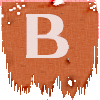This article was written by the player
Boa,
and posted on Apr 18 2009.
Last updated by the god
Dentin on
Nov 20 2009, and Sep 13 2010.
This article does not cover the brewing of poisons. For the darker side
of brewing, see our article on
The
Black Art of Poison Brewing.
The Ralnoth Alchemists Guild maintains a
list of commonly known and
used potion recipes. This list includes ingredients and expected spells,
as well as other possibly useful information about common brews.
The Art of Alchemy
Mages don't only just cast spells - they also have access to a brew
potion skill. With this mid-level skill, the mage can brew special
spells, even those generally only gifted to clerics by their gods, and
even some not castable by any other means. It is rumoured some alchemists even
know recipes to brews that restore the drinker's mana! These recipes
are often well-guarded secrets, as alchemists generally do not like
competition in acquiring the ingredients needed to make their prized brews.
The Brewing Skills
The first thing you need to do before you can brew is learn the
'
brew potion' skill. This skill is the basis
for all potion brewing, but it isn't the only skill you can get.
Salk in the city of Ralnoth, as well as many other trainers, can teach you
this skill and get you on the way to brewing potions.
There are other skills that may help you with brewing and using potions.
The first of these, '
potion lore', allows you
to identify the critical aspects of new brews and is required to submit
new potion recipes to the Ralnoth Alchemists Guild. If you know potion lore,
you'll be able to identify possible spells on brews and how common they might
be.
The next skill, '
reagent lore', can help you
identify spell component ingredients with special properties. Spell components
can have affinities for a particular spell or spell group, and by using
several components from the same group you can greatly increase the chance
of getting spells. As an example, creating a brew using only ingredients
from the 'ice' group would be very likely to produce ice spells.
The skill '
brew focus' is used after you know a
particular brew well and wish to extract a single spell from it. By concentrating
and using your mana, you will improve the odds of the desired spell being brewed.
This also has the effect of making other spells less likely to be brewed, which
can be good or bad depending on what other spells are present. Usually this
spell is used to make sure that 'clean' potions are brewed, for example 'pure'
heal, with no side effects.
If you find a really good brew that you want to use later, the
'
potion bottling' skill that can be used to
preserve brews so that they don't lose their magical properties over time.
This skill can be learned from Salk in Ralnoth and requires one
hundred gold for each bottle. Beware! Bottled potions do not save, so
if you need to log out you may want to drop or donate your potions. This
also means that bottled potions will be lost if the game reboots, so you
can't collect bottled potions indefinitely.
Collecting Brewing Supplies
There are three main types of items that can be used as potion ingredients.
These fall under the category of '
spell component',
'
herb', or '
food'.
These are found under the 'TYPE' heading in an identify or list. All these
various kinds of potion ingredients
can be bought or otherwise acquired from special shopkeepers, or
found around the world. These shopkeepers are in every major city from
Airam to Zin.
Note that finding or buying potion ingredients can be difficult or expensive,
and if your skill levels are low you may fail and ruin the brew. It's a
good idea to practice your potion brewing skills to a high level so you
don't waste ingredients.
Before you can brew anything with your ingredients, you'll need to find a liquid
container in which to brew the potion. These are generally pretty easy to come
across, and can range from small bowls to mugs, buckets, and cauldrons. You should
be able to find suitable liquid containers in shops or donation rooms, if you don't
stumble across any while adventuring.
One last thing to consider when looking for brewing ingredients is the Ralnoth
Alchemists' Guild. Salk, in Ralnoth, is a high ranking member of the
Guild, and can help you enter and advance in the guild. To begin, you
must learn the '
potion lore' skill, which will
allow you to submit new recipes to the guild. Submit enough high level
recipes and you can gain access to guild-member-only shops loaded with
obscure spellcomps.
Finding Brew Recipes
The easiest way to start brewing is to use what's called the 'scattershot'
approach, which can occasionally land you a lot of experience as well. This is
done by acquiring a lot of spellcomps and simply brewing all of them together
to see what you get. If you don't like the result, you can easily empty out
the container and repeat. Be careful
though, as some potions will be activated by being dumped out. Some
alchemists prefer to simply donate these potions instead of having to deal
with dangerous high level spells.
Assuming your recipe yields a potion, the level of the spells will be
determined by the average levels of the spellcomps you used. Note that
food is usually low level, and some spellcomps are listed as 'total
levels'.
One downside of the scattershot approach is that it can use a lot of ingredients,
and sometimes it's hard to duplicate the results or collect the same ingredients
again. For this reason, it's pretty popular to get starter recipies from the web
page of the
Ralnoth Alchemists Guild.
When looking for recipes, it's very helpful to have the
'
potion lore' skill. If
you possess this skill, you will be told the chances of what the recipe
will brew, such as 'certain to brew heal', or 'low chance to brew
stoneskin'. This is much more effective than just identifying brews
as the brew you made may have been misbrewed or contaminated.
Remember that if you create a really good brew that you want to use later, the
potion bottling skill allows you to bottle your brew so that it won't lose its
spells over time.
Technical Details of Brewing
In September of 2010, the brewing system was taken apart and rebuilt, adding a lot
of features and interesting brewing possibilities. For this part of the article,
the "old system" is brewing prior to September 2010, and the "new system" is how
brewing works after September 2010.
The old system was 100% "mad scientist" factor brewing. The resulting spells were completely
random, with a completely random brew percentage (like always, sometimes, etc.) You could have
multiple spells on a brew, because they were picked completely randomly and tossed onto the
potion. Neither builders nor players had any way to influence or control the brewing process.
The new system is fundamentally different in a lot of ways, but the biggest, most core change
is this:
All possible spells are considered for the brew, and only one each of the most likely ones are selected,
until the brew is complete. Note that even spells with zero chance to be brewed are still considered,
they just never appear in a potion.
This by default implies that you can only ever get one copy of a spell on a brew. Never again
will people be able to brew triple level 80 cone of cold potions, or double level 60 fireweb.
All spells start with zero chance to be brewed. We then add chances to each spell in three stages:
- Spell components that have affinity for a particular spell group are added. About half of the
spells in the group are randomly chosen, and each is given some chance to be brewed.
- Spell components that have affinity for a particular spell are added. The spell gets some
random chance to be brewed. This chance is stronger than the chance for spells in a spell group.
- Finally, there is a "mad scientist" portion of the brew, which adds some chance to completely
randomly picked spells.
Here are some observations about what might happen as a result of this:
- If you brew a potion using components with multiple different spell groups, you'll have a
chance to brew a lot of different spells, possibly the limit of what can be put into the
brew. It's just that the chances won't be very high for most of them. This can lead to
some very chaotic brew recipes.
- If you brew a potion using multiple components from the same spell group, you'll have a good
chance to get multiple spells from the group, and not a lot of other spells.
- If you brew something using a small number of components without any affinities, you'll be
relying completely on the "mad scientist" part.
- If you brew something using one component with group affinities, you'll be
relying mostly on the "mad scientist" part, and you'll get occasional hits within the group.
Sometimes the "mad scientist" part of the brew will add to the group part, and you'll get a
really solid brew.
- If you brew something using one component with a spell affinity, you'll have a good chance
to get that spell, and you'll probably be hoping that the "mad scientist" part doesn't screw things up.
Regarding the new skills that have been added with the new system, 'reagent lore', will tell you
what the spell components have affinities for. If you can't identify what the component does at
your current skill level, you will be able to later once your skill level increases high enough.
The second new skill is perhaps the most valuable addition. By focusing a brew, you can greatly
increase the chance that a specific spell is brewed.
A side effect of this is that other spells have a much lower chance of being brewed, so a
potion with a good chance to brew one
desirable spell and several bad ones can be brewed such that the desirable spell occurs nearly
always and the undesirable spells are much less likely.
Some other related trivia about the new system:
- The code has a random but low chance to anonymously submit unsubmitted brews. This is to
ensure that exotic but commonly used potions eventually end up as common knowledge. As a
potion brewer, you are allowed to keep your secrets for a time, but not forever. This is
similar to patenting an invention.
- Gods have the ability to set or remove spell component affinities. You can expect that
spell components with affinities will in the future become more common, and spell components
that have no affinity today may have an affinity tomorrow. This will add spells to your
existing brews if you use those components.
- The reverse of the above is also true: you may find that some crazy good brew has been
dented by having the affinity changed on one of its components. There are guidelines
to limit the damage/change that builders cause by doing this, but we reserve the right to
break brews this way. Hopefully change can be kept to a minimum.
BACK -
Alter Aeon Article Index










